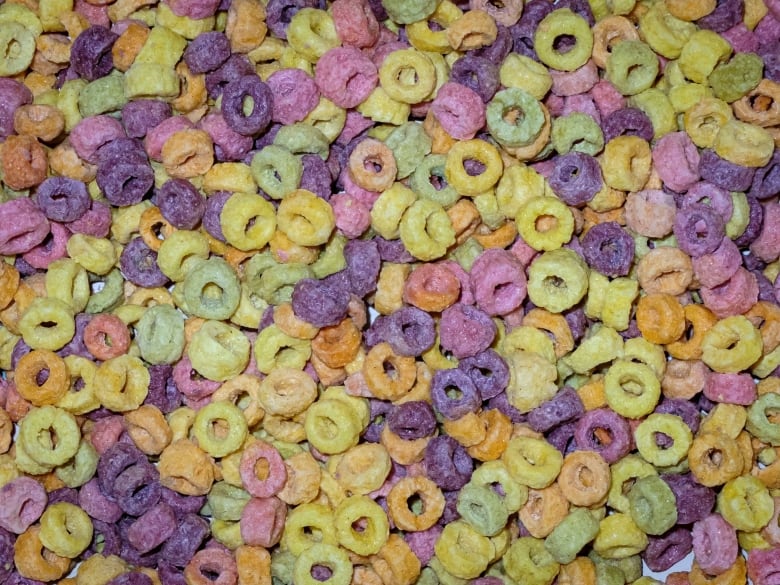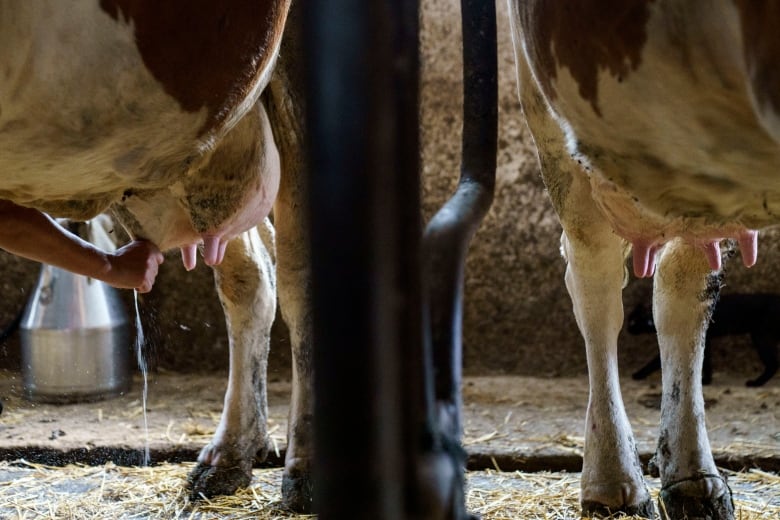
U.S. president-elect Donald Trump’s nomination of Robert F. Kennedy Jr. for health and human services secretary has raised significant concerns among scientists and public health officials.
They believe some of his views, including those questioning the efficacy and safety of vaccines, should disqualify him from heading a department that oversees everything from the safety of drugs and food to medical research, Medicare and Medicaid.
Recently, Kennedy pulled Canada into the mix with one his theories — the potential dangers of food dyes in cereals — when he suggested that the U.S. needs to mimic its northern neighbour because it uses fewer artificial food colours.
CBC News looks at some of the claims Kennedy has made, ranging from those involving vaccines and seed oils to raw milk and chronic disease in children.
Vaccines
Kennedy has insisted that he is not “anti-vaccine,” and as recently as last month told NBC News that he was “not going to take away anybody’s vaccines.”
But Kennedy, who is founder of the anti-vaccine group the Children’s Health Defence, has promoted and continues to promote claims about potential dangers of vaccines, questioning, for example if they have caused more harm than good.
But health officials have widely rejected his claims, saying immunization has wiped out or nearly wiped out a number of diseases, including smallpox, polio and measles, and saved millions of lives.

Kennedy has also referred to the COVID-19 vaccine, credited for saving millions of lives, as the “deadliest vaccine ever made,” pointing to deaths reported to the Vaccine Adverse Event Reporting System, which is part of the country’s vaccine safety monitoring systems.
But according to the University of Pennsylvania’s Annenberg Public Policy Center, those reports are unverified and, as the VAERS website warns, any report “to VAERS is not documentation that a vaccine caused the event.”
U.S. president-elect Donald Trump is nominating former Democrat Robert F. Kennedy Jr., known for his vaccine skepticism and other controversial stances, to lead the Dept. of Health and Human Services. Politico reporter Ursula Perano breaks down the appointment and the odds that Kennedy and other contentious cabinet choices will make it through Senate confirmation.
Kennedy has particularly zeroed in on debunked links between childhood vaccination and autism. He and others who claim there’s a link initially blamed thimerosal, a mercury-based preservative that contains ethylmercury. It used to be found in low doses of some of the childhood vaccines and was used to prevent potentially life-threatening contamination with harmful microbes, according to the U.S. Food and Drug Administration.
Measles, mumps and rubella (MMR) vaccines never did contain thimerosal, according to the U.S. Centers for Disease Control and Prevention.
David Mandell, a professor and director of the University of Pennsylvania’s Penn Center for Mental Health and a psychiatric epidemiologist with a particular focus on people with autism, said numerous studies have looked at children vaccinated in general and vaccinated at different ages to see if the risk of autism increased.
“We used all sorts of data sets all over the world to study this. And the answer was no,” he told CBC News.
Thimerosal was taken out of all childhood vaccines by 2001, although it is still used in some flu vaccines.
Mandell said that Kennedy persisted with his claims, citing a 1998 Lancet study that purported to show a link between autism and childhood vaccination but was later discredited and retracted.
Mandell said additional studies looked at autism diagnoses among vaccinated and unvaccinated children after thimerosal was removed from childhood vaccines, and the dataset continues to show “in a very straightforward way that there is no risk for autism associated with [vaccines].”
Chronic disease in children
Kennedy has spoken about an epidemic of chronic disease in children, including autoimmune disease, diabetes, asthma and food allergies. He has said that back in the 1960s, when his uncle, John F. Kennedy, was president, only six per cent of children had chronic health conditions.
Now, Kennedy says, that figure has risen to 60 per cent. Kennedy blames it on a whole host of factors, including vaccines and environmental toxins.
But Christina Bethell, a professor at Johns Hopkins University Bloomberg School of Public Health in Baltimore, said she doesn’t know where Kennedy is getting those figures. Back in the 1960s, there was no national survey of children’s health or a way to track it, she said.
Bethell said there’s no evidence that such chronic health conditions have so significantly increased since then and it would be difficult to compare how chronic conditions were defined decades ago to now. She said there are certainly many adults born in the 1960s dealing with health issues now, which may indicate they were dealing with health issues back as children.
Still, Bethell does credit Kennedy for putting these kinds of health issues in the spotlight, as the U.S. is near the bottom across all industrialized countries in child well-being and has been for decades. And, according to the National Survey of Children’s Health, around 40 per cent of children do have a chronic health condition.
“If he can do anything to shine a light on how early life experience in childhood predicts our entire adult well-being and our population’s health, that would be awesome,” she told CBC News.
Seed oil
Kennedy has also taken aim at seed oils, recently posting on social media that Americans are being “unknowingly poisoned” by such oils and that these oils are “driving causes of the obesity epidemic.”

Such seed oils are sometimes referred to negatively by critics as the “Hateful Eight” — corn, canola, soy, sunflower, grapeseed, rice bran, cottonseed and safflower.
But Christopher Gardner, a professor of medicine at Stanford University in California who focuses on investigating the potential health benefits of various dietary components, said years of research contradict that label.
“While many nutrition questions are difficult to answer or don’t have adequate science, there’s a lot of science on seed oil, cooking with seed oil, using seed oil,” he told CBC News. “They are healthy.”
And they are certainly healthier than some cooking alternatives, like butter and lard, he added.
Critics mistakenly get hung up on the high concentrations of omega-6 fatty acids and low concentrations of omega-3 fatty acids in seed oils, Gardner said.
Both are polyunsaturated fats, which only come from food and can help reduce bad cholesterol levels in blood.
The National breaks down the implications of Donald Trump’s choice of noted vaccine-skeptic and fluoride critic RFK Jr. and former TV personality Dr. Oz for top U.S. healthcare positions.
But omega-3 fatty acids are believed by scientists to play a more prominent role in lowering cardiovascular risk, which includes lowering triglyceride levels and blood pressure.
Gardner agreed that studies show omega-3 fatty acids are better than omega-6 fatty acids, but that doesn’t mean omega-6 fatty acids are bad or have been shown to be harmful.
“Somehow that finding has been slipped into saying omega-6 are pro-inflammatory … triglyceride-raising and blood pressure-raising. And that’s wrong, they aren’t.”
While omega-6 fatty acids do help the body reduce bad cholesterol, they are also pro-inflammatory, which critics say will lead to inflammation and contribute to illnesses such as heart disease. Omega-6 fatty acids also help lower cardiovascular risk by helping the body reduce bad cholesterol.
The American Heart Association says they should be included as part of a healthy diet and that it hasn’t been shown to be harmful. A 2018 review by Cochrane, the group known for its gold-standard evaluation of evidence in medicine, found that higher intakes of omega-6 fats had little to no difference to deaths or cardiovascular events, and might even reduce the risk of heart attacks.
Food dyes
In a recent interview with MSNBC, Kennedy raised concerns about food dyes, using the cereal Froot Loops as an example of a U.S. food product that he believes has too many artificial additives, particularly in comparison to its Canadian version.
“Why do we have Froot Loops in this country that have 18 or 19 ingredients, and you go to Canada and it’s got two or three?”

The U.S. and Canadian versions of the popular cereal actually have about the same number of ingredients, but a Kennedy spokesperson later clarified that Kennedy was referring to the number of food dyes in the Froot Loops.
It’s true that Canada uses more natural food colours in Froot Loops, but both countries use artificial food colours in foods, subject to regulatory approval by their respective health agencies.
Kennedy has long argued that artificial food colours can cause hyperactivity and learning disorders in children.
Some studies have shown that certain dyes may increase hyperactivity in children. Meanwhile, studies of some dyes — for example Red No. 3 — in high doses delivered over long periods of time have been linked to thyroid cancer in animals.
But Joe Schwartz, a professor of chemistry and director of McGill University’s Office for Science and Society in Montreal, said there’s no strong evidence linking synthetic food dyes to cancer in people.
“I don’t have very much concern about food additives. I think they’re very well-tested,” he told CBC News. “I do have an issue with food dyes because they really do not have any kind of a nutritional value. They’re just cosmetic.
“And very often you find them in foods that are low in nutritional quality. So they attract people to eating foods that they would be better off eating less of.”
Raw milk
Kennedy has said when it comes to milk, he only drinks it raw, meaning it hasn’t gone through the germ-killing pasteurization process. The sale and distribution of raw milk is illegal in Canada and roughly half of all U.S. states.

Raw milk could contain bacteria such as campylobacter, listeria and E. coli from the manure of cows, Schwartz said. Gems can also come from a cow’s udder or from the hands of those handling the cows.
Those who support the drinking of raw milk say it contains enzymes that are destroyed by the pasteurization process that help prevent osteoporosis, boost gastrointestinal health and the immune system. The FDA, however, has rejected these claims, dismissing them as “myths.”
Schwartz said those enzymes, which are proteins, are broken down in digestion and don’t get into the human bloodstream.
One study found that in the U.S., from 1998 to 2018, there were 202 foodborne illness outbreaks linked to drinking raw milk that caused more than 2,500 illnesses and more than 200 hospitalizations. California recently suspended distribution of raw milk products after the bird flu virus was found in milk samples.
“So whatever excess nutrition there is in raw milk is absolutely insignificant,” Schwartz said.





